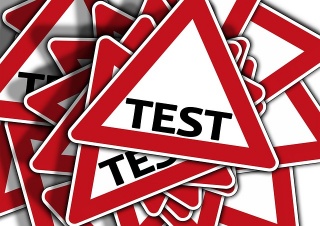The questions which follow provide a basic knowledge test of selected concepts covered in this learning pathway:
What makes a successful entrepreneur.
The questions published at the end of each learning pathway are re-used for the knowledge test for learners interested in earning a digital badge or certificate of participation for the Introduction to entrepreneurship (IENT101) micro-course. Please consult the Certify participation page for more information.
Indicate whether the following statements are true or false:
- Successful entrepreneurs are resilient.
- Successful entrepreneurs have a clear vision of their goals.
- Entrepreneurs do not need any technical knowledge in order to succeed.
- True
- This statement is not true.
- False
- You are right - this statement is false.
- Successful entrepreneurs want to offer outstanding customer service.
Multiple choice questions
- Indicate which ONE of the following statements about SMART goals is TRUE:
- Successful entrepreneurs do not need to worry about setting SMART goals
- No, this is false. SMART goals guide entrepreneurs.
- The ‘M’ in SMART refers to goals which are Measurable
- Yes, measurable goals can be measured by cost, quality, and quantity. Criteria are established to measure progress towards the attainment of each goal.
- SMART goals must always be based on research
- No, this statement is false.
- SMART goals do not need a target completion date
- No, this is false. The T in SMART refers to goals which are time-bound, time-based, or timely. It is important to know when a goal will be achieved by.
- Indicate which ONE of the following reasons is NOT mentioned in the IENT101 video about being an entrepreneur rather than an employee:
- Being a trailblazer and setting new rules
- This is mentioned by one of the interviewees.
- Not being anyone’s boss
- That’s right. This is NOT mentioned. One interviewee mentions that they like being their own boss, but no-one talks about not having any employees.
- Being able to create something from nothing
- One person says that it is fascinating and really exciting when this happens. Another interviewee talks about wanting to create something.
- Having a sense of ownership
- This is mentioned by one interviewee, who says that entrepreneurs need to find their own path.
- Indicate which ONE of the following statements about the common reasons for entrepreneurial failure is FALSE:
- Many entrepreneurial projects fail because of problems with finance
- This statement is true. Sometimes, the required finance cannot be raised, the company runs out of money, the entrepreneur may underestimate set-up or production costs, or customers are not prepared to pay the asking price for a new product or service.
- Some entrepreneurs fail because of a poor understanding of the market or business context in which they are working
- This statement is true. It may be, for instance, that there is no market need for the new product or service, or that the entrepreneur has not researched their competitors thoroughly.
- Poor soft skills can also lead to entrepreneurial failure
- This statement is true. If a person cannot relate to others, motivate others, or is always outspoken and controversial, this can lead to failure.
- Entrepreneurs do not fail if they stick to their original innovative idea
- This statement is false. The original idea may be a good one, but an entrepreneur also needs to be able to adapt to change and be flexible.
